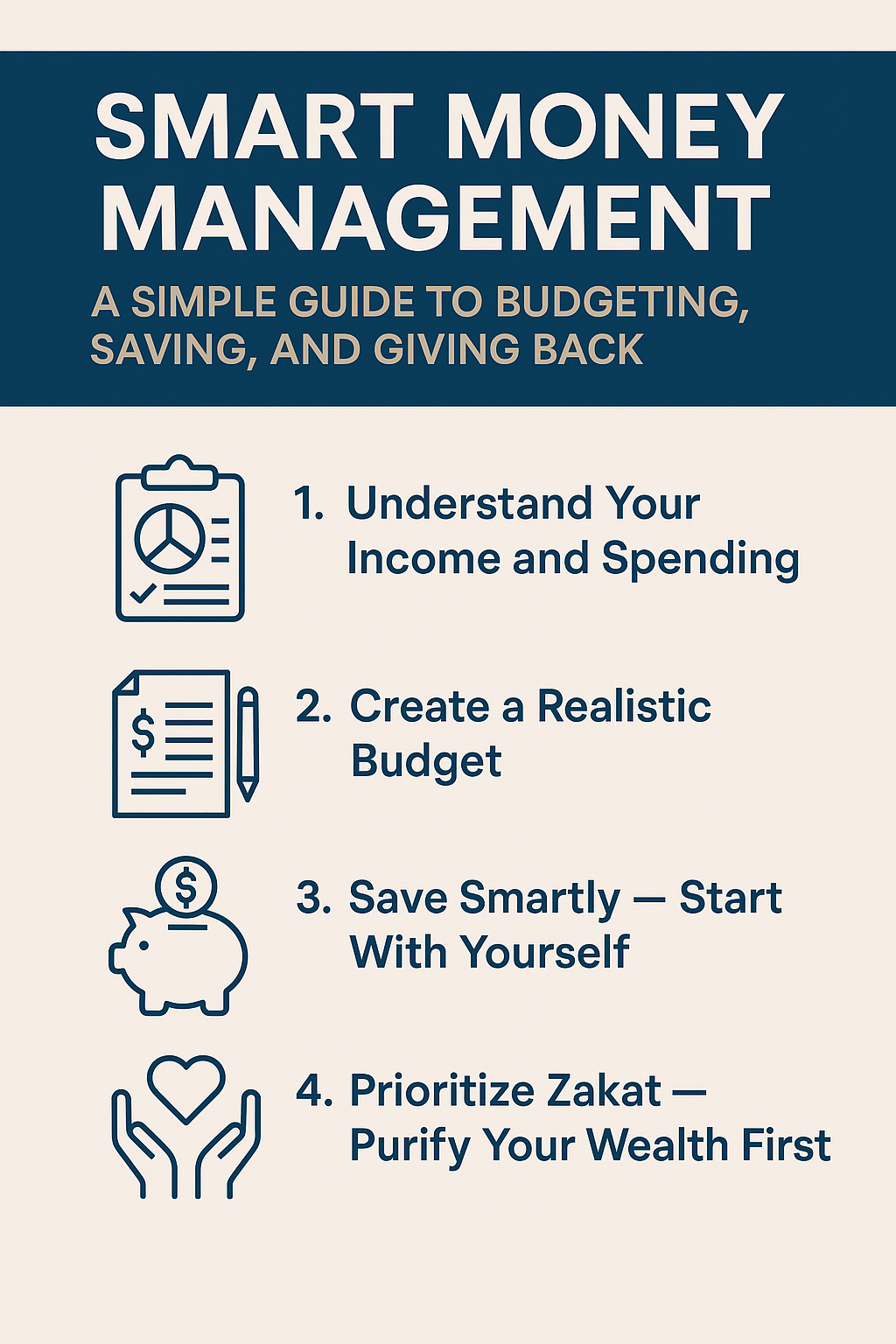
If you ever feel like your money disappears too quickly, you’re not alone. Managing your finances doesn’t have to be stressful. With a few smart habits, you can take control, reduce worry, and even watch your savings grow.
Here’s your complete guide to smart budgeting with easy tips you can start using right away.
✅ Step 1: Understand Your Income and Spending
Good money management starts with knowing exactly how much you earn and where your money goes. Ask yourself:
-
What is my total monthly income after taxes?
-
What are my biggest spending areas?
Once you know the answers, you can create a plan that fits your life.
Try the 50/30/20 rule:
-
50% for needs (like rent, groceries, and bills)
-
30% for wants (like shopping or eating out)
-
20% for savings and paying off debt
Remember, these numbers can change based on your situation. The most important thing is not to spend more than you make.
✏️ Step 2: Create a Realistic Budget
A budget is simply your spending plan. It helps you decide where your money should go each month.
To make your budget:
-
List all your monthly expenses: rent, food, transportation, and so on.
-
Separate your needs (what you must pay) from your wants (what you like, but can skip).
-
Be honest—see where you can cut back if needed.
Your budget should include:
-
Monthly essentials
-
Savings
-
Debt payments
-
Charity (see more below)
Tip: Use a notebook, a phone app, or a simple spreadsheet to track your spending.
Also Read: Living with Purpose: Why You Feel Lost and How to Find Your Way Back
💰 Step 3: Save Smartly — Start With Yourself
Saving money isn’t about what’s left over—it’s about making it a priority.
Follow the rule: “Pay yourself first.”
-
As soon as your salary arrives, move 10–20% into your savings account.
-
Set up automatic transfers so you don’t forget.
-
Review your subscriptions or unused services and cancel anything you don’t really need.
Build an Emergency Fund
Try to save at least 3–6 months’ worth of living expenses for emergencies like illness or job loss.
Tip: Even small amounts add up over time. Just get started!
Also Read: The 48 Laws of Power: A Complete Guide to Robert Greene’s Masterpiece on Strategy and Influence
🤲 Step 4: Give First — Make Charity a Priority
Before you spend on anything else, set aside a portion of your income—at least 2.5%—for charity. This simple step not only helps others but also brings a sense of peace and purpose to your finances.
Why give first?
-
Charity makes your income feel more meaningful and clean.
-
It brings blessings and satisfaction to what you have left.
-
You support your community and help those in need.
Try this:
When your salary or payment comes in:
-
Calculate your charity amount (2.5% or more if you wish).
-
Give it to a trusted cause or organization.
-
Then use the rest for your needs, savings, and wants.
Tip: Set up automatic donations or create a “giving fund” in your budget. If money is tight, remember that volunteering your time or skills is also valuable.
we believe that making charity a regular part of your budget brings both personal satisfaction and positive change to your community.
Also Read: Level Up Your Life: Step-by-Step Guide to the Solo Leveling System
🧠 Final Thoughts: Make Your Money Work for You
Smart money management is about balance and steady habits. Here’s a quick recap:
-
✅ Know your income and where it goes
-
✅ Create a realistic budget
-
✅ Save first, not last
-
✅ Give charity before spending
-
✅ Keep reviewing and improving
No matter your income, you can build a brighter financial future by making smart choices today.
💡 Start Today, See Results Tomorrow
Try this plan for just one month:
-
Give charity first
-
Save automatically
-
Track your expenses daily
You’ll notice a real difference in both your money and your peace of mind.
We know that managing money isn’t just about numbers it’s about building a life of freedom, peace, and purpose. Start small, stay consistent, and watch your life change for the better.
(for guestpost and Article writing contact)
